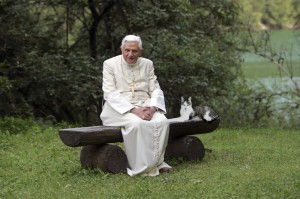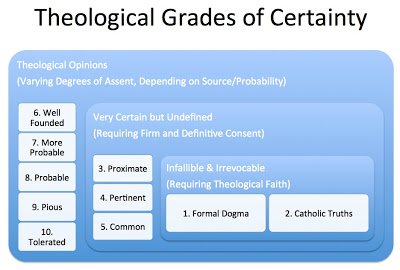The Limitations of Papal Infallibility
http://crooksandliars.com/john-amato/cardinal-dolan-questions-pope-francis
There is a pervasive misunderstanding about the dogma of papal infallibility, both by some Catholics and by some non-Catholics. This article articulates that misunderstanding when it states: “By the way, when have you ever heard a prominent member of the Catholic Church actually try to diminish the power of their pontiff, who is supposed to be infallible in all things?” Ironically, the author even linked to the wikipedia page on papal infallibility which, in its’ very first sentence, limits papal infallibility to matters of faith and morals.
It turns out, the extra ordinary use of papal infallibility is very limited. Any extra ordinary use of papal infallibility must be an explicit use of infallibility, and it can only cover matters of faith or morals. Infallibility has only been employed in this way twice. Once to agree with the Orthodox that Mary was bodily assumed into heaven, and once to explicitly state Mary was conceived without sin (her immaculate conception, not to be confused with Jesus’ virgin birth). Both of these confirmed already existing Catholic beliefs.
Now, the ordinary use of papal infallibility is when the pope is in agreement with a Church council. His agreement with the council is a sign the council as a whole was correct in what they assented to or denied. From these we get the full list of dogmas, all 252 of them (I encourage all to read the list of dogmas. The vast majority are quite mundane, such as, “there is only one God”). Beliefs outside of these have various degrees of theological certainty, and could be elevated or lowered in certainty as we further employ reason to understand in a deeper way our faith. As Catholics, we are taught to take these other beliefs seriously, with an assent of faith to those who teach us, even though the beliefs might be lowered in certainty in the future.
The total of all this means that, from the article, Cardinal Dolan is correct that, “a pope by his nature can’t make doctrinal changes”. What a pope does is clarify and confirm, not change. A pope must do that within the confines of Sacred Tradition, that presence of the living Christ in our faith which remains constant across time (because Christ remains constant); and Sacred Scripture, which are the writings of the first Catholics guided by the Holy Spirit.

